Research in the book Nurture Shock: New Thinking about Children by Po Bronson and Ashley Merryman shows what Maria Montessori saw years ago – that we don’t need to praise our children for everything they do. We don’t need to continually reward our children or tell them how smart and talented they are.
As a matter of fact, telling our children how smart and talented they are can create the opposite of what we want. It can make our children afraid to attempt new things, afraid of failure, afraid they won’t meet everyone’s expectations.
What does the research suggest? When we praise, it’s best for the praise to be related to the effort our children made. For praise to be effective, it also needs to be specific and sincere.
So, how exactly does the research fit with Montessori philosophy?
Note: This post was originally published in June 2011. It’s so important that I don’t want it to be lost. So I’ve updated it a bit and republished it. You’ll see some children here who’ve done a lot of growing up since 2011. The photo of my daughter is much older (from 1992, so she’s now 27 instead of 1½ … and she’s an adult with wonderful values and self-discipline)!
Disclosure: This post contains some affiliate links (at no cost to you).
NurtureShock: New Thinking About Children by Po Bronson and Ashley Merryman
Principles of A Montessori Approach to Praise
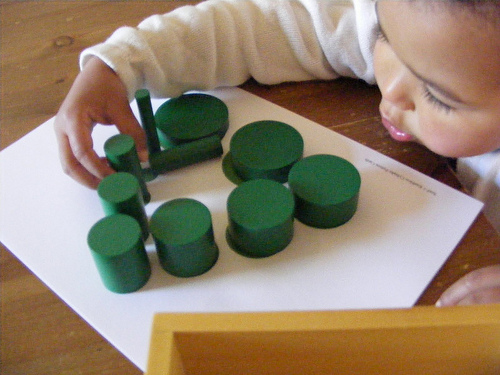
Working with Montessori Knobless Cylinders and Knobless Cylinder Pattern Cards from Montessori Print Shop (Photo from Homeschool Escapade)
1. In Montessori education, there aren’t rewards and punishments. Maria Montessori believed in the child’s inner need to do productive work. Sensitive periods provide an internal urge and stronger reinforcement than any rewards or praise could do.
“The essence of independence is to be able to do something for one’s self. Adults work to finish a task, but the child works in order to grow, and is working to create the adult, the person that is to be.” Maria Montessori
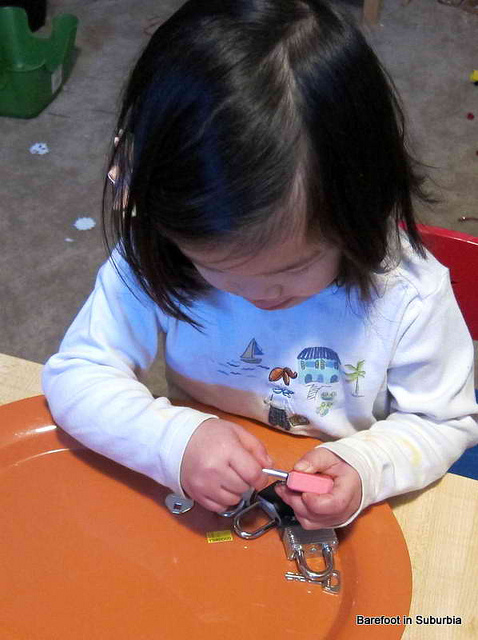
Working with Locks and Keys (Photo from Barefoot in Suburbia)
2. Montessorians don’t give children lavish praise. The child’s work is highly valued in Montessori education, and praise that is given is typically specific praise emphasizing effort. “You really worked hard at that.” “You did that activity four times in a row!” In an article at Maria Montessori, Bobby and June George give the idea of saying simply, “You did it!”
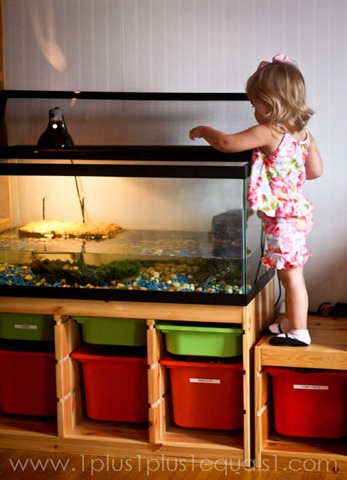
Helping Feed the Turtle (Photo from 1+1+1=1)
3. Montessorians try to give encouragement rather than praise or descriptive rather than evaluative praise. Instead of saying, “You’re a good boy,” a Montessorian might say, “It really helped when you put away all the dishes.”

My Daughter at 1½ Working with a Self-Correcting Montessori Cylinder Block
4. Montessorians try to help children do things themselves and gain self-confidence. Many of the Montessori materials have a control of error so that the child can tell immediately if an activity is done correctly. An external source of approval isn’t necessary.
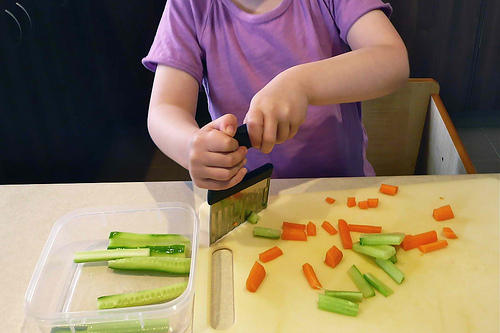
Food Preparation (Photo from How We Montessori)
5. Through Montessori control of error, children develop order, concentration, coordination, and independence. Those are all qualities that make children self-confident and capable of listening to their own inner voice.
Some Related Posts
A Montessori Approach to Discipline
Help Your Child Develop Perseverance by Using Montessori Principles
Help Your Child Develop Concentration
How to Start Using Montessori at Home
If this is your first time visiting Living Montessori Now, welcome! If you haven’t already, please join us on our Living Montessori Now Facebook page where you’ll find a Free Printable of the Day and lots of inspiration and ideas for parenting and teaching! And please follow me on Instagram, Pinterest (lots of Montessori-, holiday-, and theme-related boards), and YouTube. While you’re here, please check out the Living Montessori Now shop.
And don’t forget one of the best ways to follow me by signing up for my weekly newsletter. You’ll receive some awesome freebies in the process!


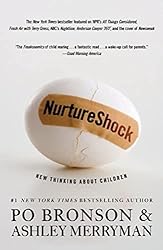
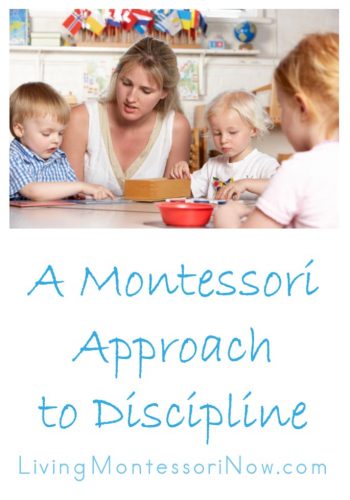
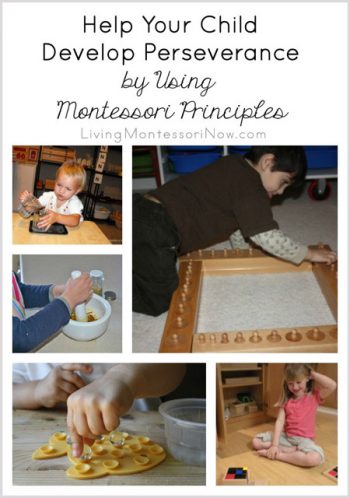
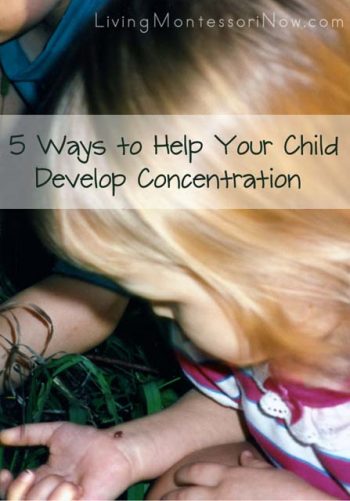




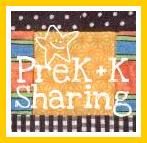

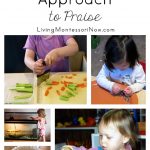
Ths is an eye opener
Thanks for your comment, Toluwani! It definitely is a different way of looking at praise, isn’t it?!
I find this whole topic fascinating. As a Child I was never given praise and it really affected my self esteem – I never felt good enough and that my parents always focused on the 2% I got wrong rather than the 98% I got right. Then I had a child so, naturally, did the complete opposite. I gave her lots of praise and she grew up to be really confident and aware of her own body and limitations. Then I read Alfie Kohn, who introduced me to the concept you are talking about here and it made a LOT of sense to me. Now my DD has chosen to go to school and all I’,m hearing is about whether I should ‘punish’ her for something she is doing wrong. She is ‘punishing’ our pet rabbit and it’s just horrible to hear her talking like this as it’s something we have never done at home. Who said parenting was easy 😉
Thanks so much for your thoughtful comment! It is fascinating to study and observe the effects of different methods of discipline. The daycare center where I first taught was very much into praise and behavior modification. While that system used mainly positive reinforcement, it wasn’t until I discovered Montessori education that I found there was an even better approach.
It would be frustrating to deal with influences that go against what you’re teaching at home, like you’re experiencing with your daughter’s school. Wishing you the best!
Love this post, so important!! I loved Nurture Shock what an amazing book! Something every parent and educator should read!
Thanks, Jess! I was really impressed with Nurture Shock, too – definitely a lot of eye-opening thoughts!
Great text, and I totally agree. This also helps when trying to be “genderneutral” when talking to the children. Also important and good that it’s explained that encouragement and praise do exist in Montessori, but in a different way. Thanks!
Thanks so much, Maria! There are sometimes mistaken ideas that Montessorians don’t use praise or encouragement. It really is praise and encouragement “in a different way.”
Well said! “You did it” and “that was very helpful” are my two go-to phrases when I’m tempted to fall back on old habits of over-praising. A simple “thank you, I really appreciated that” goes a long way too – acknowledgement without empty praise.
I can appreciate Mrs. Green’s experience as well. I grew up in a praise-empty and high-criticism environment, and I am very much a people pleaser and praise junky now. It’s been quite a journey as I attempt to move towards a more self-aware and internally motivated state of mind.
I’ve written as well about the dangers of using praise as a form of behaviour modification, but it was very interesting to hear it from a Montessori point of view. Thank you!
Thanks, Cynthia! You wrote a great post about praise as a form of behavior modification. I think “you did it,” “that really helped me,” and “thank you for helping” were always some of my favorite phrases, too!
This is good… It’s a topic that I’m slowly starting to wrap my mind around. I think praise is important (also grew up in a less-than-enthusiastic-praise environment), and I always remember feeling disappointed when the response to something I did was flat. However, I do wholeheartedly agree that praise needs to be sincere and very specific. “You’re working so hard!” and “Thank you for helping me, I really appreciate it.” are big in my vocabulary with our daughter. This is good stuff to chew on. 🙂
Thanks so much for your comment, Rosemary! I totally agree that children need lots of encouragement. It’s amazing how much sincere and specific praise, especially when it’s focused on effort, can have the best results.
Ahhh as a parent who’s done this both ways I can say without a doubt this post is dead on! 100% correct!
Thanks so much, Sheila! Your opinion always means a lot to me! 🙂
I always try to remind myself of this when my children do something praise worthy. The “you did it!” phrase seems to be the best way for me to implement praise in our daily routine. Thanks for another great post!
Thanks so much for your kind comment, Heather! I love the “you did it!” phrase, too! 🙂
I have really seen that Kieran is much more apt to concentrate on a new skill if I am simply nearby and available for neutral feedback. Sometimes I will say something to the effect of “wow, you built that tower very high!” But he takes it more as a challenge to build it higher – not as a “good job, now I’m done!”
Thanks for framing this in Montessori terms Deb!
Thanks so much for your comment, Dionna! I love your example of Kieran’s tower building. It is amazing how positive the results can be when you just reflect back what your child has done.
I too had a childhood where parents saw my 98% as missing the mark. I continue to do much personal ‘work’ as an adult to get away from the need for earning a gold star on every task I engage in mentality to feel good. Argggggggh. Easier said than done — even as a grandma.
Recognizing the effort, the concentration, the focus, the willingness, the courage to work at something new are surely the better route. Where do I go to get a “do-over”?
Thanks for your comment, Debbie! I think we adults all feel a need for a “do-over” in some part of our lives. It’s nice that we can try to do things right with our kids and grandkids! 🙂
Great info here. I really like #3!
Thanks, Michelle! I really like #3, too. It’s helpful to know what type of praise to give. 🙂
Thank you for this. I read Po Bronson’s book too and knew the negative effects of over praising, but was under the impression that in the Montessori classroom no praise was to be given. This was very timely as I have been working on giving my daughter less praise, but now I know she just needs different praise!
Thanks for your comment, Natalie! It is a tricky balance to find, but it’s nice to know we can still encourage our kids! 🙂
Thanks, Deb, for linking my post about praise to Facebook! I love your thoughts here, and am learning how better to grow my child through constructive words and actions!
Thanks so much for your kind comment, Amy! I really appreciate your linking my post. It’s such an important topic, isn’t it?!